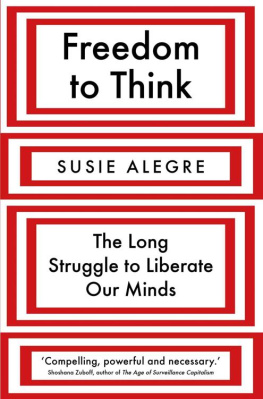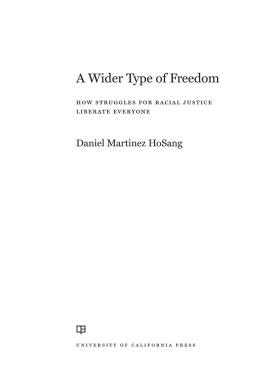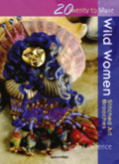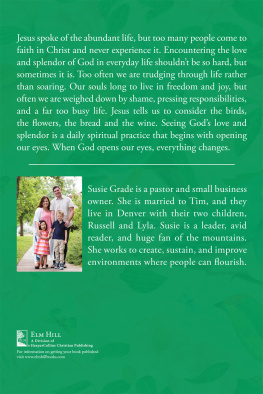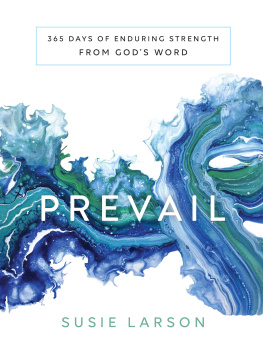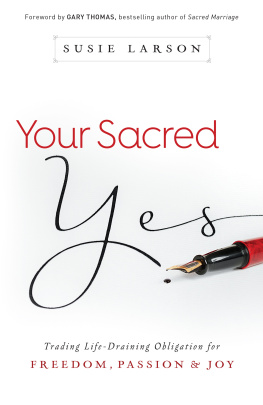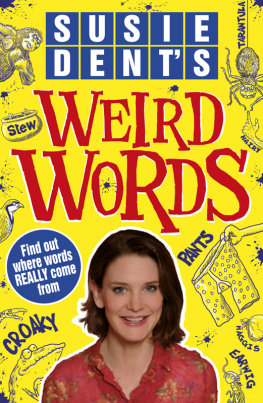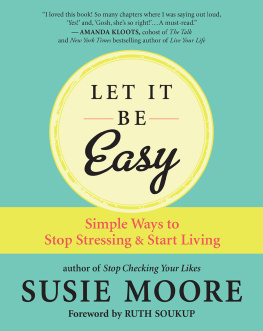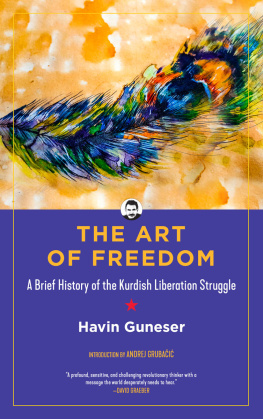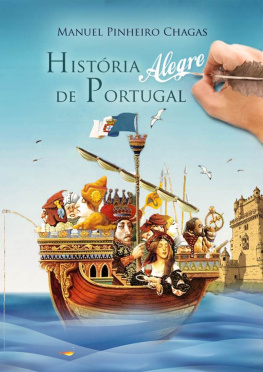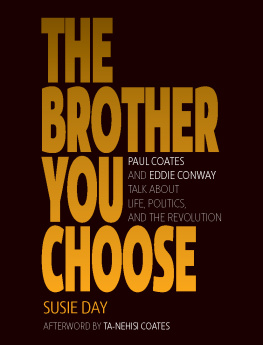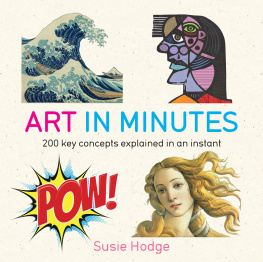Susie Alegre - Freedom to Think: The Long Struggle to Liberate Our Minds
Here you can read online Susie Alegre - Freedom to Think: The Long Struggle to Liberate Our Minds full text of the book (entire story) in english for free. Download pdf and epub, get meaning, cover and reviews about this ebook. year: 2022, publisher: Atlantic Books, genre: Romance novel. Description of the work, (preface) as well as reviews are available. Best literature library LitArk.com created for fans of good reading and offers a wide selection of genres:
Romance novel
Science fiction
Adventure
Detective
Science
History
Home and family
Prose
Art
Politics
Computer
Non-fiction
Religion
Business
Children
Humor
Choose a favorite category and find really read worthwhile books. Enjoy immersion in the world of imagination, feel the emotions of the characters or learn something new for yourself, make an fascinating discovery.
- Book:Freedom to Think: The Long Struggle to Liberate Our Minds
- Author:
- Publisher:Atlantic Books
- Genre:
- Year:2022
- Rating:3 / 5
- Favourites:Add to favourites
- Your mark:
- 60
- 1
- 2
- 3
- 4
- 5
Freedom to Think: The Long Struggle to Liberate Our Minds: summary, description and annotation
We offer to read an annotation, description, summary or preface (depends on what the author of the book "Freedom to Think: The Long Struggle to Liberate Our Minds" wrote himself). If you haven't found the necessary information about the book — write in the comments, we will try to find it.
Susie Alegre: author's other books
Who wrote Freedom to Think: The Long Struggle to Liberate Our Minds? Find out the surname, the name of the author of the book and a list of all author's works by series.
Freedom to Think: The Long Struggle to Liberate Our Minds — read online for free the complete book (whole text) full work
Below is the text of the book, divided by pages. System saving the place of the last page read, allows you to conveniently read the book "Freedom to Think: The Long Struggle to Liberate Our Minds" online for free, without having to search again every time where you left off. Put a bookmark, and you can go to the page where you finished reading at any time.
Font size:
Interval:
Bookmark:
Profoundly essential and deeply engaging. If freedom of thought and the very possibility of a free society are to survive the digital century, then we urgently need the rights and laws that will make it so. Thankfully, Alegre stands with us to lead and light the way, beginning with her compelling, powerful and necessary book.
Shoshana Zuboff, author of
The Age of Surveillance Capitalism
In the absence of adequate scrutiny or accountability, technology has developed to undermine the keystone for human dignity: the right to freedom of thought. In this timely and pioneering book Alegre contributes a sorely needed vision for how we may protect a forgotten freedom and collectively avert an Orwellian future. This book is an insightful and urgent wake-up call.
Ahmed Shaheed, UN Special Rapporteur on
Freedom of Religion or Belief
Powerful and persuasive. This important, finely written book explains why we must protect that most fundamental of our freedoms at a time when it is in danger of being overborne by profit-making propaganda, fake news and hate-fuelled social media.
Geoffrey Robertson QC,
founder of Doughty Street Chambers
______________
Susie Alegre is a leading human rights barrister and Associate at the internationally renowned Doughty Street Chambers. She has been a legal pioneer in digital human rights, in particular the impact of artificial intelligence on the human rights to freedom of thought and opinion. She is also Senior Research Fellow at the University of Roehampton and Senior Fellow at the Centre for International Governance Innovation. She lives in London.

First published in Great Britain in 2022 by Atlantic Books, an
imprint of Atlantic Books Ltd.
Copyright Susie Alegre, 2022
The moral right of Susie Alegre to be identified as the author of this work has been asserted by her in accordance with the Copyright, Designs and Patents Act of 1988.
All rights reserved. No part of this publication may be reproduced, stored in a retrieval system, or transmitted in any form or by any means, electronic, mechanical, photocopying, recording, or otherwise, without the prior permission of both the copyright owner and the above publisher of this book.
Every effort has been made to trace or contact all copyright holders.
The publishers will be pleased to make good any omissions or rectify any mistakes brought to their attention at the earliest opportunity.
10 9 8 7 6 5 4 3 2 1
A CIP catalogue record for this book is available from the British Library.
Hardback ISBN: 978-1-83895-152-8
Trade paperback ISBN: 978-1-83895-153-5
E-book ISBN: 978-1-83895-154-2
Printed in Great Britain
Atlantic Books
An imprint of Atlantic Books Ltd
Ormond House
2627 Boswell Street
London
WC1N 3JZ
www.atlantic-books.co.uk
To the past, to the future,
to a time when thought is free
George Orwell, Nineteen Eighty-Four
For my parents and my daughter.
________
________
1989 was a year of turmoil, optimism and excitement. It was the year Tim Berners-Lee invented the World Wide Web and the year I turned 18 one of the last of a generation to live their entire childhood offline. A generation for whom privacy meant trusting your mother not to read your diary and thought control was a Pink Floyd lyric.
As I crammed existential angst from Sartre and Camus and memorised the names and dates of French revolutionaries, Nazi propagandists and English kings, images of resistance from the other side of the world flashed across TV screens as protesters in Tiananmen Square fought for their chance to experience democracy and freedom. Their protest was crushed, but it was only the first act in a year that proved that the eternal fight for human freedom was far from over.
That summer, I joined the crowds on the streets of Paris to celebrate a turning point in that struggle, 200 years earlier, when the French had chosen libert, galit, fraternit as the foundations of a revolutionary new world order based on democracy and human rights. Thirty years on from the bicentenary, I might have found somewhere to stay through an app, and there would have been a selfie of me smiling by the Eiffel Tower that all my friends could like. But in 1989, there was no accommodation to be had and I didnt feel that I needed any record to show that I was there on the Champs-Elyses, part of the throng of idealists and opportunistic party people celebrating the turbulent history of human freedom. So now I have only the memory of opening myself up to Camus benign indifference of the world as I slept under a bush by the banks of the Seine, a riverside that was peppered with dog turds but filled with hope and history.
Three months later, the Berlin Wall fell. This time, freedom really had won. The long shadow of twentieth-century totalitarian rule in Germany was erased in a blaze of fireworks. Germany was finally united and could begin to repair its divided soul after almost 60 years of the authoritarian horrors wreaked by both Nazi and communist social control.
While Europe was experiencing the practical rebirth of liberty, I pored over its theoretical foundations in the brutalist atmosphere of Edinburgh Universitys library. J. S. Mills On Liberty and the Socratic dialogue of Platos Republic taught me to think seriously about what it means to be human, while I revelled in the eternally misplaced optimism of Voltaires Candide and discovered the infinite flavours of the water of life in dark, smoky Edinburgh bars. I read voraciously and eclectically. But struggling to navigate the library index cards and taking notes on pads of A4 ruled paper, my explorations of Jungs dream analysis, virgin birth in the Trobriand Islands and the hidden meanings of French folk tales left no virtual trace of my thought processes for others to track. There was no assessment of my thinking beyond my tutors notes in the margin of last-minute essays, scribbled through the long, dark Edinburgh winter nights. It was a delight that year finally to be free to think and to drink and to wallow in hopeless unrequited love.
There was a boy. Not the kind I would want my daughter to fall for he was unreliable and disaster-prone though he was undoubtedly intellectual, anarchic and exciting. He had taken me to Paris, and that Christmas he asked me to lend him money so he could go to the biggest New Years Eve party ever in a freshly unified Berlin. But in a moment of self-possession, I decided that if I could get the money, Id rather use it to go myself instead. Always resourceful and persuasive, he found the funds elsewhere and told me he had sorted out accommodation so I didnt need to. We arranged to meet there.
On New Years Eve 1989, frozen to the bone after twenty-four hours curled in the crushing cold of a midwinter train corridor, I found myself waiting with my friend for a boy in front of a slowly disintegrating Berlin Wall in a crowd that hummed with the collective joy of liberation. The boy never showed up. Ghosting was much, much easier without a mobile phone, and I should have seen it coming. He had already stood me up once late at night on the Cte dAzur earlier that year. If Id had a Facebook account, I would no doubt have set my relationship status to Its complicated. But we dont need algorithms to make ridiculous romantic choices. And sometimes, being stood up on a freezing night in a foreign country is what we need to give us a glimpse of the best of all possible worlds.
Font size:
Interval:
Bookmark:
Similar books «Freedom to Think: The Long Struggle to Liberate Our Minds»
Look at similar books to Freedom to Think: The Long Struggle to Liberate Our Minds. We have selected literature similar in name and meaning in the hope of providing readers with more options to find new, interesting, not yet read works.
Discussion, reviews of the book Freedom to Think: The Long Struggle to Liberate Our Minds and just readers' own opinions. Leave your comments, write what you think about the work, its meaning or the main characters. Specify what exactly you liked and what you didn't like, and why you think so.

